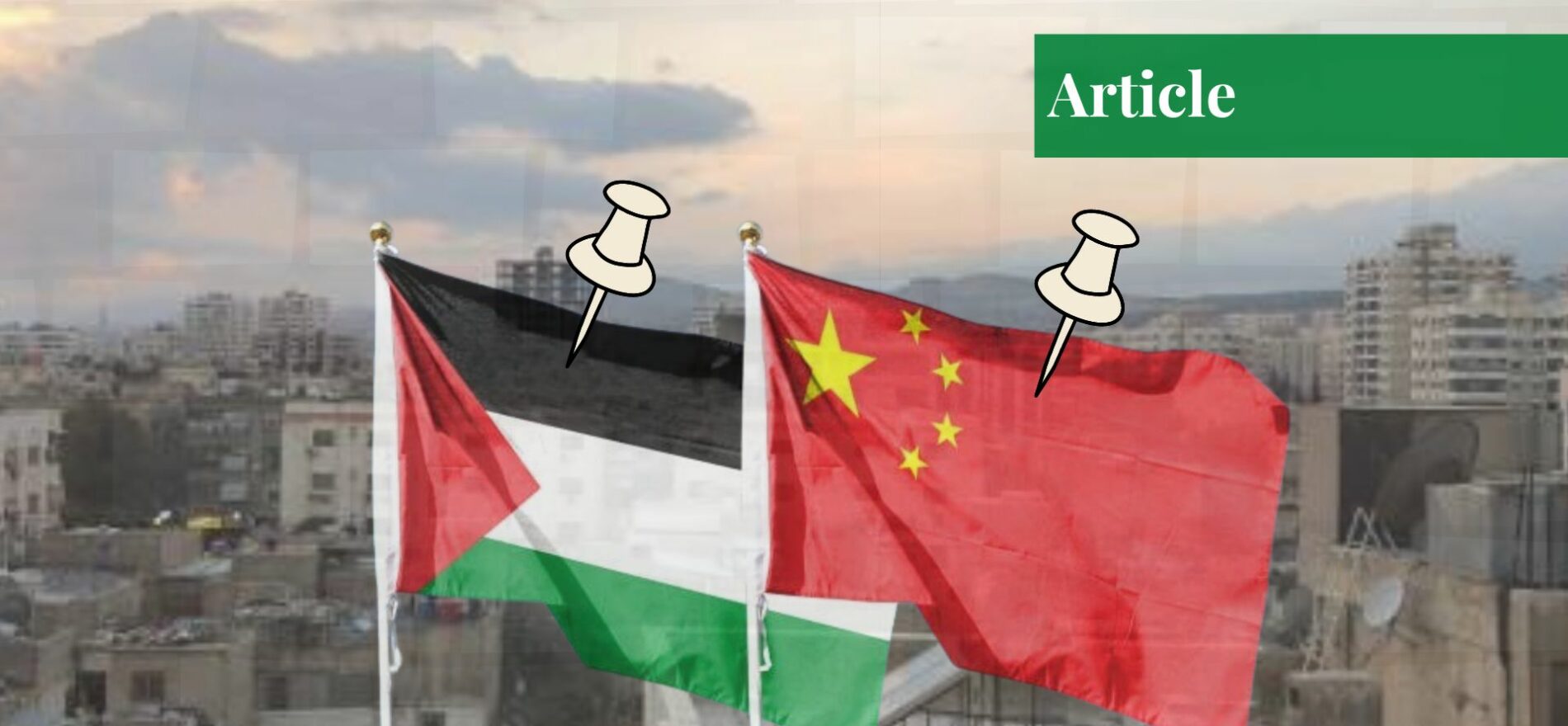Introduction
The People’s Republic of China has a long-standing and intricate relationship with Palestine, entwined with its larger Middle East strategy.
China-Palestine Relations
China first acknowledged Palestine diplomatically in 1965, but it did not legally recognize the country until 1988. The Palestine Liberation Organization (PLO) established a representative office in Beijing in the 1960s, which eventually expanded to an embassy in 1974, marking the beginning of China-Palestine diplomatic relations.
Chinese hosting of important Palestinian leaders like Yasser Arafat showed support for their struggle and demonstrated China’s sympathy towards Palestine. Mao Zedong emphasized China’s opposition to imperialism by comparing Taiwan and Israel to local strongholds of imperialism. China gave the PLO significant support, including military assistance, totaling $5 million between 1960 and 1970, despite experiencing internal difficulties like poverty.
Recent developments, like Palestinian Prime Minister Mahmoud Abbas’s visit to Beijing, have highlighted China and Palestine’s strategic alliance. During the “Arab States-China Summit,” Chinese President Xi Jinping reiterated support for an independent Palestinian state with East Jerusalem as its capital.
China-Israel Relations
China and Israel have strong economic relations because of the large investments made under the Belt and Road Initiative (BRI). China’s financial support for the Israeli economy has been substantial, reaching about $15 billion. This influx of capital has helped Israeli startups flourish and has also resulted in major Israeli company acquisitions by well-known Chinese corporations. These partnerships take advantage of Israel’s experience to more effectively advance the development of the modern Chinese economy.
Consequently, China can negotiate the complexity of the Middle East by maintaining diplomatic relationships with Israel, while simultaneously supporting Palestine to maintain a careful balance. To maintain its Middle East policy, China must, nevertheless, proceed cautiously in the face of the continuing Hamas-Israel conflict.
China’s Stance on the Hamas-Israel Conflict
The relationship between China and Middle Eastern countries took a significant turn in the 21st century. Due to China’s rapid economic rise, securing vital natural resources became a strategic priority. Originally, China’s shift toward Asia and Africa was largely overlooked in the Middle East. However, the 2011 Arab Spring was a watershed, forcing China to take a more active role in its relations with important regional nations.
One significant event that occurred during this transition was China’s evacuation of more than 35,000 of its residents who were left behind during the civil disturbances in Libya. This move represented China’s expanded involvement and visibility in the Middle East after the Arab Spring.
China’s policy regarding the Middle East generally revolves around its financial investments and BRI, and it tries to persevere these investments through diplomacy. China aims to use diplomatic channels and mediation efforts to address Middle Eastern conflicts as part of its foreign policy approach. One of the latest examples could be the Saudi-Iranian rapprochement, mediated by China. The Asian Giant made efforts to bring two major rivals, i.e., Saudi Arabia and Iran, to the negotiation table. These efforts made by China are to establish stability in the Middle East and to secure its interests.
However, China’s attitude completely changed after the recent attack by Hamas on Israeli civilians on October 7th. While condemning the attack, China refrained from labeling Hamas as a terrorist organization, which contrasted with the stance of the US and its allies, who explicitly condemned the organization and extended full-fledged support to Israel.
The first statement made by Chinese officials immediately after the Hamas attack was to reduce tensions. Moreover, they restated the ideas of a “two-state solution” and “the creation of an independent Palestinian state” to resolve the issue.
Neither Chinese Foreign Minister Wang Yi nor President Xi visited the Middle East after the October incident. In the initial stage of the conflict, China maintained a balanced stance, unlike the USA. This measured response continued as Israel launched its invasion of Gaza. China remained pro-Palestinian in the days that followed.
The Chinese President openly expressed his support for an independent Palestinian state on October 19th. During discussions with Egyptian Prime Minister Mostafa Madbouly, he further said that the only possible solution for recurring Israel-Palestine conflicts is the implementation of the two-state solution. Peaceful co-existence could only be maintained between both the states, i.e., Israel and Palestine, by the establishment of an independent state of Palestine.
Moreover, at a meeting on October 15th with his colleagues from Iran and Russia, China’s foreign minister reaffirmed his nation’s support for the Palestinian struggle against Israeli oppression.
China’s Support to Palestine In Using Armed Forces
Recently, in February 2024, citing it as a fundamental right based on international law, China expressed support for the Palestinian right to use armed force to resist Israel’s occupation of its territory. At the open proceedings at the International Court of Justice (ICJ) in The Hague, Netherlands, Zhang Jun, Chinese ambassador to the UN, voiced these opinions.
The Chinese representative stressed throughout the hearing that many countries had freed themselves from colonial control by any means required, including armed conflict. He claimed that rather than being classified as terrorism, the Palestinian armed resistance should be seen as legitimate. Jun denounced Israeli policies as repressive and harmful to the Palestinians and their right to self-determination and independence.
With participants from several nations, including Hungary, France, South Africa, and Egypt, the ICJ saw worldwide involvement in its public hearings, mandated by the United Nations General Assembly (UNGA.)
International organizations that are actively involved in these proceedings are the African Union (AU), the Organization of Islamic Cooperation (OIC), and the Arab League. Israel has made written observations to the court despite not being present at the hearings.
The proceedings ran through February 26th and involved a panel of fifteen judges. The judges are to deliberate for roughly six months before providing an advisory opinion. This case has attracted much interest because it features the most participatory states of any ICJ case since its founding in 1945—as opposed to the more well-known genocidal case brought by South Africa.
Conclusion
China has always preferred using soft diplomacy, especially when resolving issues internationally. It is quite evident from the recent event of the Saudi-Iran rapprochement that China is trying to de-escalate tensions between the two biggest rivals in the Middle East. Likewise, it has also given peaceful solutions to end the Israel-Palestine conflict permanently. Although China has been supporting Palestine since 1988, it has not spoiled its relations with Israel either.
According to William Figueroa, an assistant professor of “History and Theory of International Relations” at Groningen University, China would prefer a speedy settlement of the dispute and some participation in future diplomatic initiatives. However, he expressed skepticism about China’s ability to participate in these discussions and its place in the process.
If you want to submit your articles and/or research papers, please check the Submissions page.
The views and opinions expressed in this article/paper are the author’s own and do not necessarily reflect the editorial position of Paradigm Shift.



















